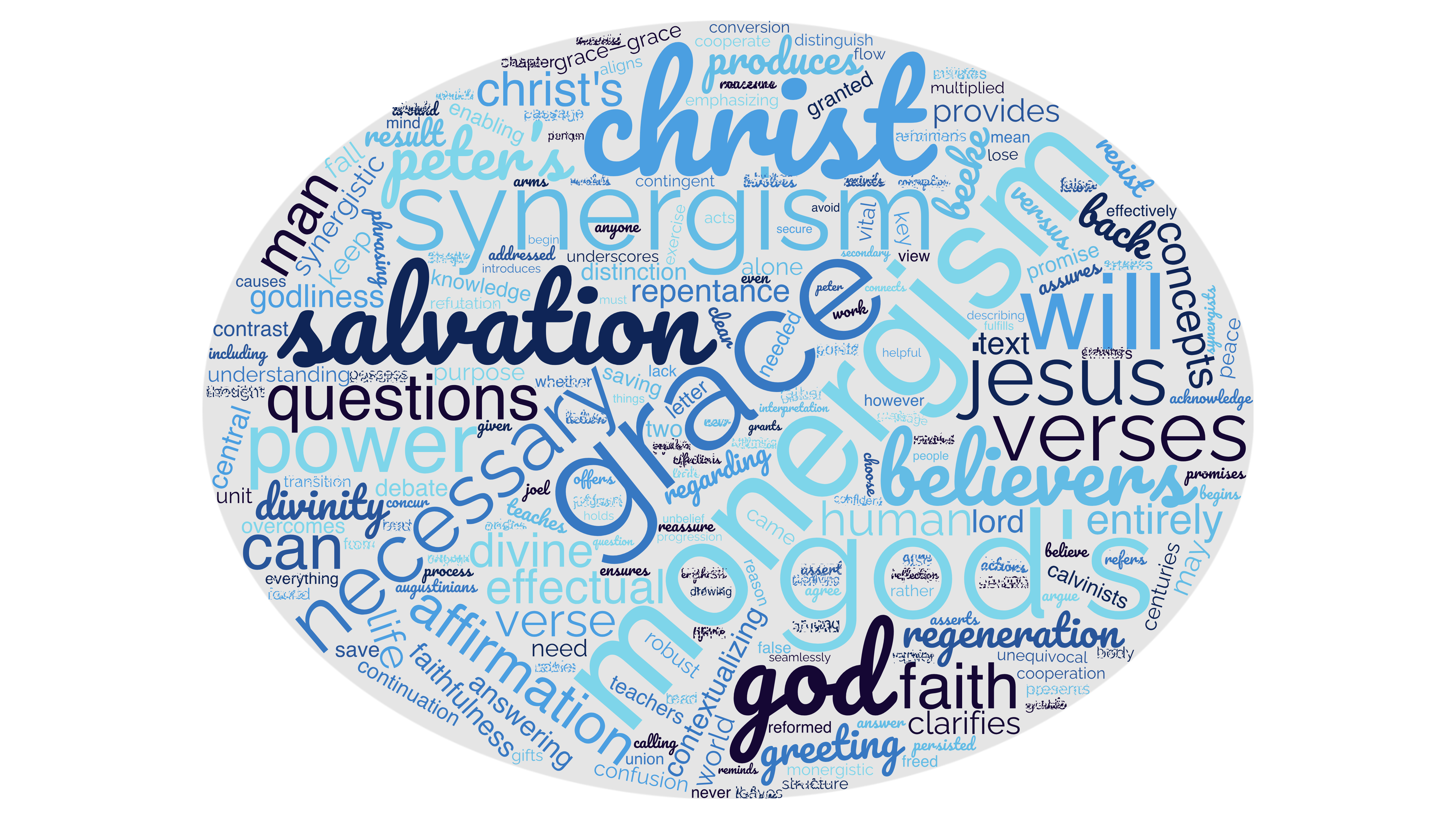Monergism vs. Synergism in 2 Peter 1:3-4

For centuries, the debate over whether salvation is monergistic or synergistic has persisted. Monergism asserts that God acts alone to save, while synergism posits that God’s grace and human will cooperate in salvation. Even among reformed believers, there can be confusion regarding these concepts.
Both Augustinians or Calvinists and Arminians agree on certain points. They concur that God’s grace initiates the process of drawing sinners to Christ. Both also acknowledge that salvation involves actions by both God and man. But what does this mean, and how do we distinguish monergism from synergism?
Understanding Monergism and Synergism
Joel Beeke offers a helpful distinction — monergism holds that God’s grace alone produces saving faith and union with Christ. God’s effectual grace overcomes our unbelief and leads us to salvation. In contrast, synergism teaches that human cooperation with God’s grace is necessary; man must choose not to resist grace for it to result in salvation.
Beeke clarifies this further with the concepts of effectual grace versus necessary grace. Effectual grace is God’s divine power that effectively produces salvation in all to whom it is given. In this view, regeneration is entirely a work of God, who grants us a new mind, will, and affections, enabling us to exercise repentance and faith.
Synergists, however, believe in necessary grace—grace that provides what is needed for conversion but leaves faith and repentance contingent upon human action. They argue that faith causes regeneration rather than being its result.
A Biblical Affirmation of Monergism
This distinction is vital because 2 Peter 2:3-4 presents a clear refutation of synergism and a robust affirmation of monergism. Peter seeks to reassure believers, answering concerns such as:
- How can I avoid being deceived by false teachers (as addressed in 2 Peter 2)?
- How can I be confident I will escape judgment when Christ returns?
- How can I know I will not fall back into the corruption of the world I was freed from?
Peter’s answer is unequivocal: Your calling and salvation are entirely by God’s grace, power, and faithfulness. God ensures that He fulfills His promises, including the promise never to lose anyone who belongs to Him and to keep His people secure in Christ’s arms.
Contextualizing 2 Peter 1:3-4
A secondary question arises from the structure of this passage: Are 2 Peter 1:3-4 a continuation of the greeting in 2 Peter 1:1-2, or do they begin the body of the letter? If we read 2 Peter 1:3 as part of the greeting, it connects seamlessly:
May grace and peace be multiplied to you in the knowledge of God and of Jesus our Lord, because His divine power has granted to us all things that pertain to life and godliness.
This interpretation aligns with the flow of thought, as 2 Peter 1:5 introduces a transition: “For this very reason…” This progression clarifies that 2 Peter 1:1–4 form a unit, describing who believers are, what they have, and how they came to possess it.
Emphasizing Christ’s Divinity
2 Peter 1:3 begins with “His divine power,” which refers back to “Jesus our Lord.” This phrasing underscores Christ’s divinity and reminds believers that Jesus provides everything necessary for life and godliness. Peter’s emphasis assures the saints that they lack nothing in Christ.
Two Key Questions: Receiving and Purpose
Peter’s message revolves around two central questions:
- How do we receive what we need?
- For what purpose do we have these gifts?
These questions will guide our reflection as we explore the text further, affirming that all we need is found in Jesus Christ.



Leave a Reply